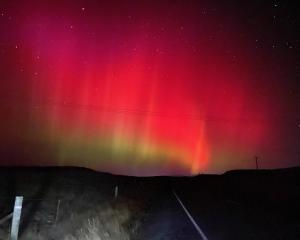Environmental activist group Sea Shepherd says it has intercepted two of the illegal poaching vessels which outran New Zealand's navy in Antarctic waters last month.
The HMNZS Wellington spent two weeks pursuing three vessels -- the Songhua, Kunlun and Yongding -- which were illegally fishing in the Southern Ocean.
The standoff ended when the navy was unable to board the foreign-flagged ships and began running low on fuel.
Sea Shepherd said its ship the Sam Simon intercepted both the Yongding and the Kunlun inside Australian waters today, with prohibited fishing gear on deck.
Both vessels are classed as illegal, unregulated, and unreported fishing boats, or IUUs.
Sam Simon captain Sid Chakravarty radioed the vessels, ordering them out of the region. The Yongding then turned directly toward the Sam Simon, missing a collision by 10 metres, the group said in a statement this evening.
"This is the second instance in the last month that both the Yongding and the Kunlun have been found in Australian waters," Mr Chakravarty said.
"Both vessels have a long history of fishing violations, and the aggressive actions of the Yongding indicate that they have something to hide.
"It is abundantly clear that the New Zealand and Australian governments should not have let the vessels out of sight when they were first found."
In January, Foreign Affairs Minister Murray McCully said two of the vessels had links to a Spanish crime syndicate, Vidal Armadores.
The three vessels were issued with Interpol purple notices for suspected illegal fishing activity and related crimes, and the navy was given permission to board the vessels, which were flagged to Equatorial Guinea and were not legally permitted to fish in the region.
But attempts to board them and inspect their catches failed.
Today, Sea Shepherd criticised the Australian government for failing to respond to the poaching ships operating in Australian waters.
"The inaction of the Australian government, choosing to not take up the chase after the HMNZS Wellington was forced to return to port, has allowed the poachers to roam free in these waters," Mr Chakravarty.
"This has directly resulted in the illegal vessels continuing to plunder Antarctica of its vulnerable toothfish populations.
"In response to this meek reaction from Australia, the poaching vessels have shown little regard for authority and absolutely no concern of being apprehended.
"The Sam Simon is committed to blockading the fishing operations of the Yongding and the Kunlun, with Sea Shepherd once again standing as the last line of defence for the marine life of Antarctica."
Last month, the navy hit back at critics who said its failed pursuit of the illegal fishing vessels was a public relations disaster, with the HMNZS Wellington's commanding officer, Lieutenant Commander Graham MacLean, saying the crew had gathered plenty of evidence of illegal activity.
"Not only did we find three IUUs operating in an area of Antarctica which is the size of Australia, we caught them in the act of fishing using the element of surprise and tenacious tactics to then exploit a whole heap of evidence which is now being analysed ... to bring these guys to justice."
Commander MacLean's crew captured video evidence of fishermen hauling in Antarctic toothfish -- one of the most lucrative catches in the world.
The Southern Ocean fishery, which contains sensitive toothfish and krill populations, is tightly regulated and cannot be fished by countries which do not belong to the 25-member Commission for the Conservation of Antarctic Marine Living Resources.
By Patrice Dougan of NZME. News Service












